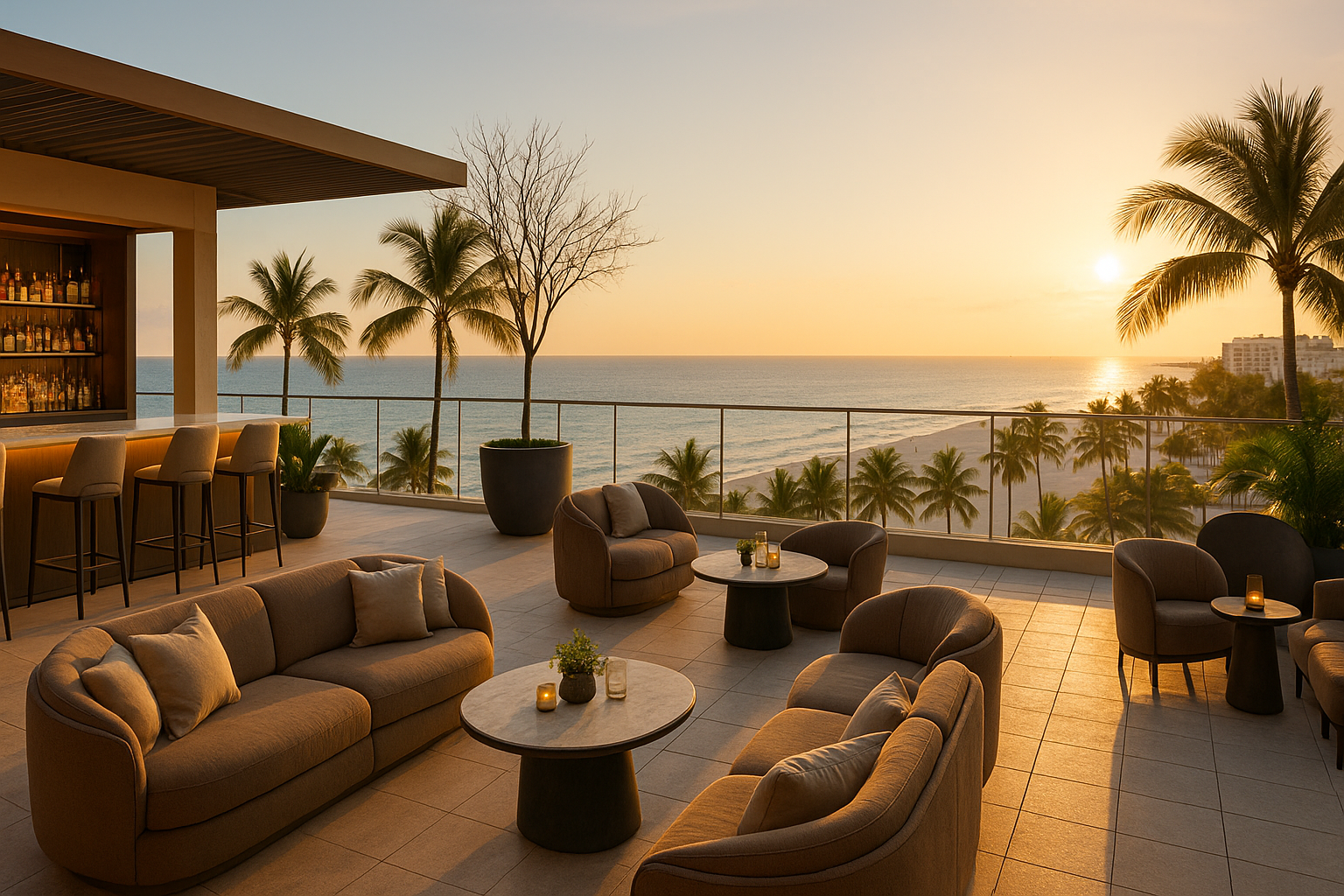
For decades, the iconic Playboy brand has symbolized glamour, nightlife, and cultural influence. Now, Playboy Enterprises is entering a new chapter as it officially relocates its global headquarters to Miami Beach. The announcement, confirmed last week, not only solidifies Miami’s reputation as a hub for lifestyle and entertainment industries but also signals the brand’s commitment to reinventing itself for a new era. Central to this move is the creation of an exclusive private club that blends luxury, hospitality, and creativity a venture that reflects both Playboy’s legacy and Miami Beach’s unique cultural energy.
The decision to move the company’s base of operations from Los Angeles to South Florida has been years in the making. Executives cited Miami Beach’s international appeal, vibrant nightlife, and rapidly expanding creative economy as major factors. The new headquarters will serve as a dual-purpose space: corporate offices for global operations and a members-only club designed to attract leaders in business, art, music, and technology. This hybrid concept aims to elevate the Playboy brand beyond its historical image as simply a lifestyle magazine.
The private club, scheduled to open in 2026, will combine hospitality, fine dining, entertainment, and curated events. Sources close to the project reveal that the venue will feature rooftop views of the Atlantic, a speakeasy-style lounge, and a state-of-the-art event space for art exhibitions and cultural activations. The design is being led by internationally recognized architects who promise to merge Playboy’s legacy of elegance with Miami Beach’s modern, tropical aesthetic.
Miami Beach has long been a magnet for global talent, and this move positions the city at the center of Playboy’s rebranding strategy. In recent years, Miami has seen a surge of tech startups, financial institutions, and lifestyle brands establishing a presence. Playboy’s arrival further validates Miami Beach as a cultural and economic powerhouse. Local officials celebrated the announcement, pointing to the potential boost in tourism, job creation, and international visibility.
Beyond business operations, the headquarters will host the “Playboy Creative Lab,” an initiative designed to support artists, designers, and entrepreneurs. This program is expected to collaborate with Miami’s growing art community, aligning with the city’s reputation as the home of Art Basel Miami Beach and other international creative festivals. By opening its doors to local talent, Playboy hopes to position itself as a patron of culture rather than just a commercial enterprise.
The relocation also underscores Miami Beach’s growing status as a destination for luxury private clubs. In recent years, members-only venues such as Soho House, Casa Tua, and Faena’s exclusive circles have thrived, catering to affluent locals and international visitors alike. Playboy Miami Beach will enter this competitive market with a brand that already carries decades of global recognition, giving it a unique advantage.
From an economic perspective, analysts predict the move will generate significant revenue streams. Tourism experts believe the headquarters and private club will attract new waves of visitors, including international travelers seeking exclusive nightlife experiences. Real estate developers are also eyeing the project, anticipating rising demand for luxury condos and commercial spaces near the club’s eventual location.
However, the move is not without controversy. Critics argue that Playboy’s legacy is complicated, tied to outdated representations of women. Company executives have responded by emphasizing a new mission: promoting inclusivity, creativity, and empowerment. The Playboy Miami Beach initiative is being framed as a platform for modern cultural dialogue rather than a continuation of the past. This shift includes collaborations with female entrepreneurs, LGBTQ+ creators, and diverse artists who will help shape the new club’s programming.
Community leaders are cautiously optimistic. While some residents worry about traffic, nightlife noise, and gentrification, others welcome the investment. Miami Beach Mayor Steven Meiner noted that the headquarters “reflects the city’s growing appeal as a place where global icons can thrive while supporting local culture.”
The timing of the move is also significant. Miami Beach is preparing for the 2026 FIFA World Cup, which will bring millions of visitors to South Florida. The opening of Playboy’s private club just before this global event could position it as a must-visit destination for celebrities, athletes, and influencers.
As Playboy Miami Beach prepares to open its doors, the brand is betting on the city’s magnetic energy to fuel its reinvention. Whether it succeeds in reshaping public perception remains to be seen, but the move highlights how Miami Beach continues to attract some of the world’s most recognizable names. For Playboy, the future now belongs to the Magic City.
In the end, this bold relocation is more than a corporate move. It represents a symbolic alignment between one of the world’s most recognizable lifestyle brands and a city defined by diversity, creativity, and luxury. As construction begins and anticipation builds, Miami Beach residents and the world will be watching closely to see if Playboy’s gamble pays off.